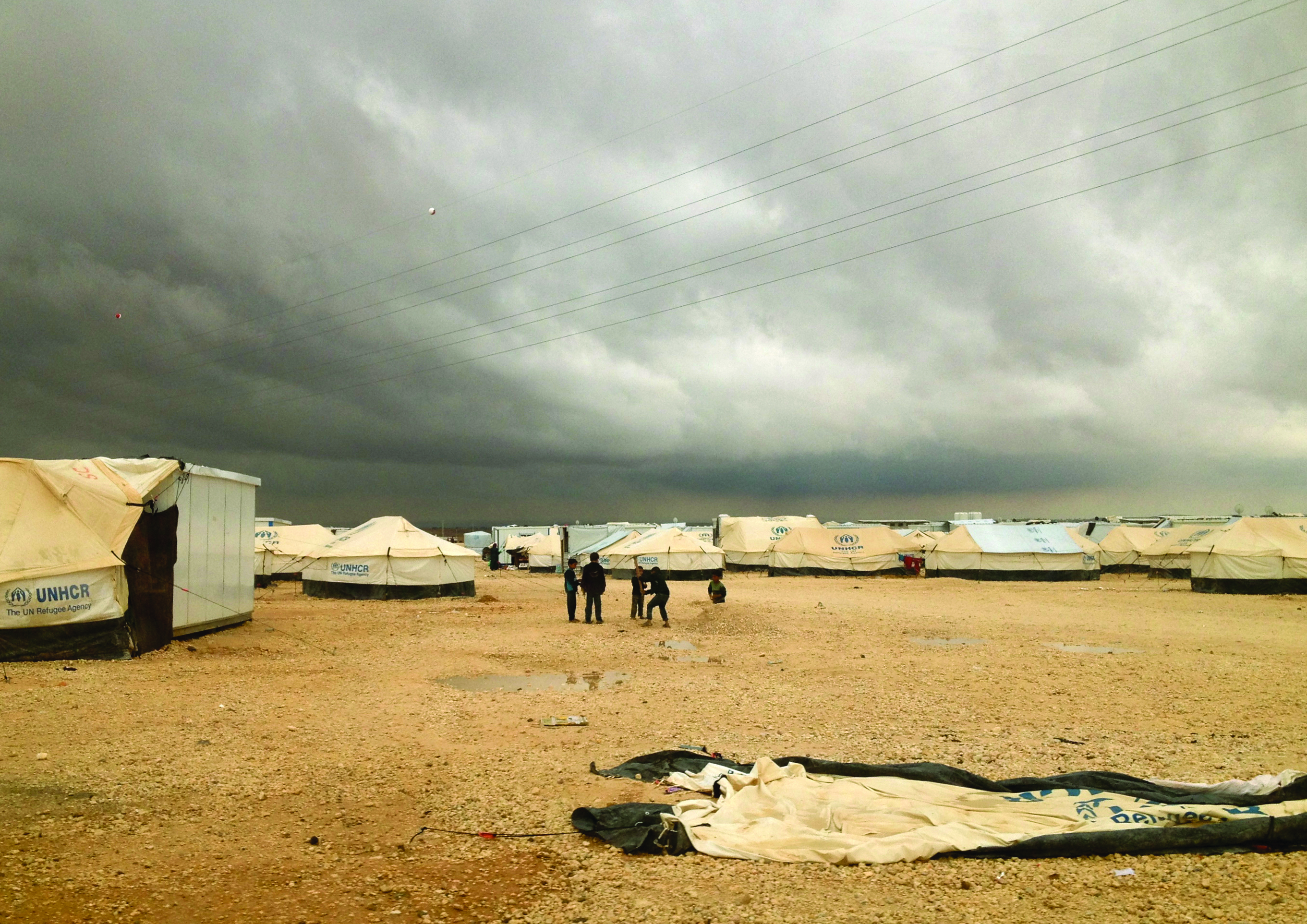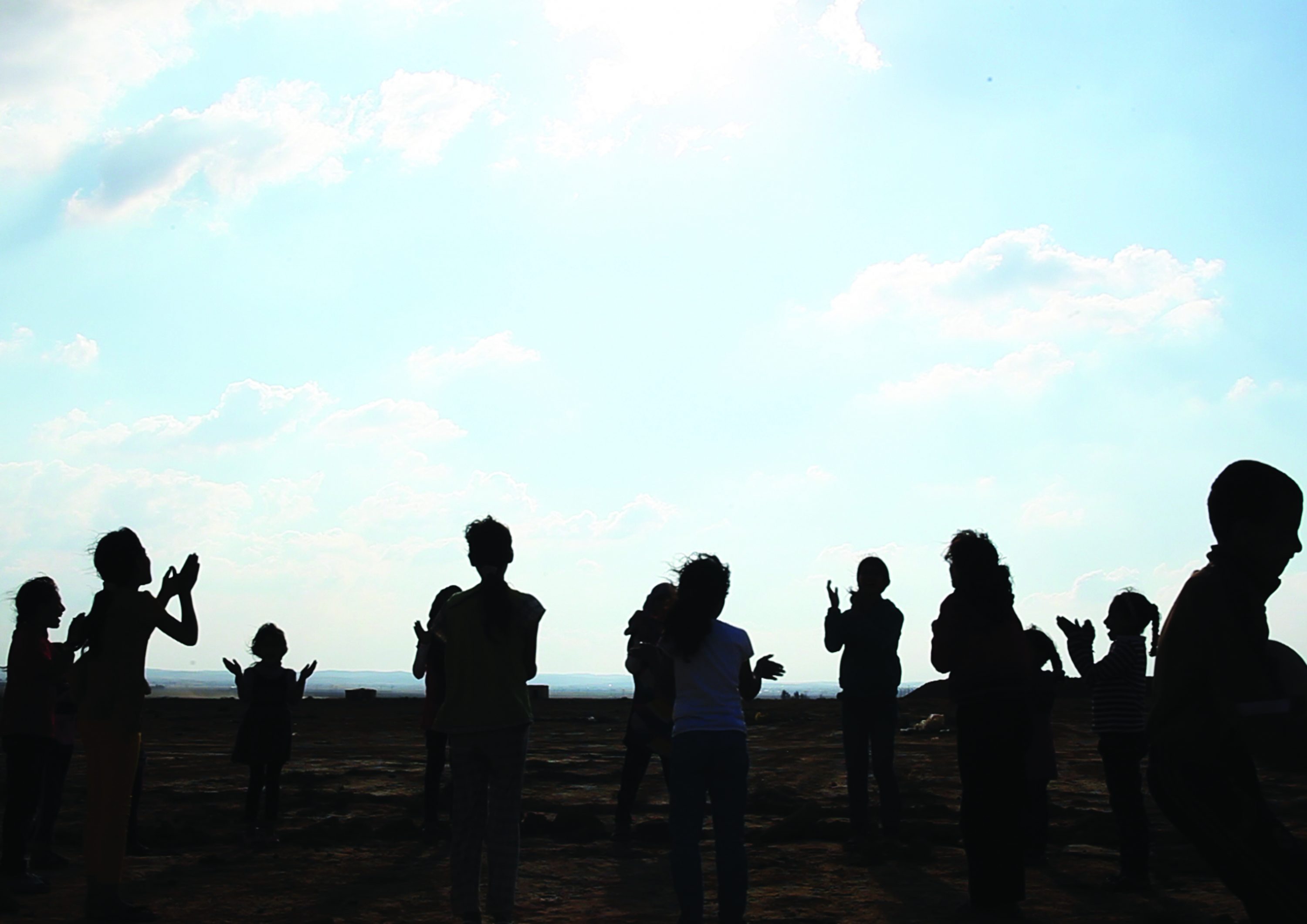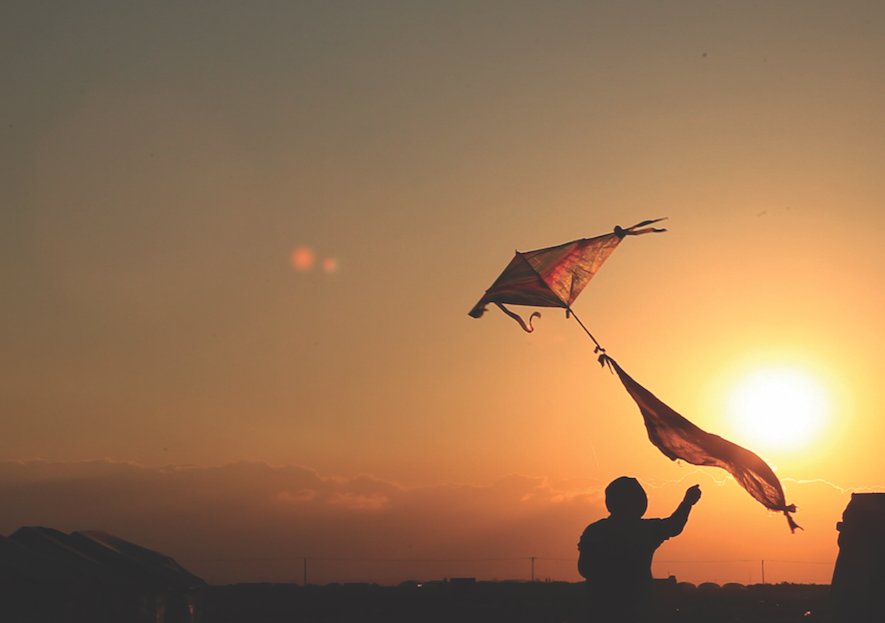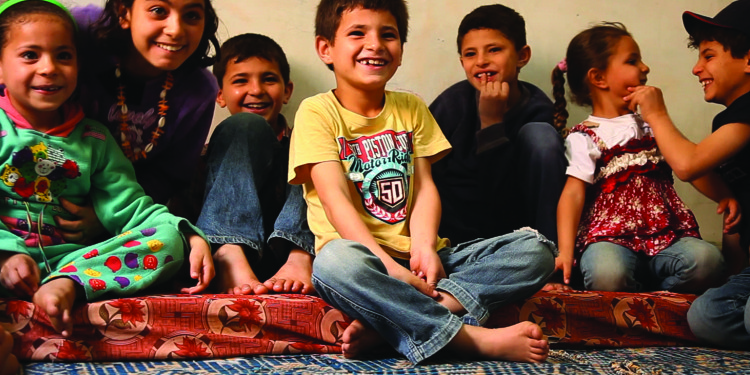An Interview with LIVED Founder Katherine Baxter
Katherine Baxter is Founder and Co-Director of LIVED, a non-profit that engages with displaced youth from around the world through documentary filmmaking. The documentaries and film workshops enable a new perspective for the kids and shed light on their day-to-day experiences in places like the Zaatari Refugee Camp in Jordan and Calais “Jungle” migrant camp in France.
EDITOR’S NOTE: HIGHLIGHTS FROM THE EMAIL INTERVIEW HAVE BEEN CONDENSED AND EDITED BELOW FOR CLARITY.
What was the inspiration behind LIVED?
K.B.: LIVED began as a small postgraduate student initiative that my friend Arek Dakessian and I started at the University of Edinburgh in 2013. Arek is Lebanese-Armenian and has family in Syria. He has a background in film, and I specialize in education and working with young people. We decided to make a short documentary that would share some insights into the everyday lives of children who had been forced to leave their homes in Syria. At the same time, we wanted to engage the community we were a part of at Edinburgh to move from thinking about these issues like displacement and ethnic conflict in an abstract, theoretical way to a more grounded, lived, and experiential way.
We were able to get a small grant from the University, assembled a team of 10 students, and put our heads together to turn this idea into a reality. There were about six months of research, fundraising and negotiating access to the Zaatari camp through UNHCR. And much of this was very grassroots—we were having bake sales about a month before we were scheduled to leave for Jordan to cover all our expenses. But in the end we made it happen. And since then we have become a formal, registered Scottish charity creating awareness and support for the experiences of forcibly displaced youth around the world.

Photo Credit: LIVED
The documentary, Learning to Swim, shows the everyday lives of Syrian kids in the Zaatari Refugee Camp in Jordan. What did you learn in producing this film?
K.B.: Every day challenged us to adapt and learn something new. I learned not to underestimate the importance of personalities. I learned that things rarely go as planned and to be ready to spontaneously accept new paths of action. And I learned that absolutely nothing comes before preserving the dignity and wellbeing of those people who agree to share bits of themselves and their stories with you.
I was surprised by the resiliency we witnessed in many of the Syrian people and their ability to find hope to transform their circumstances from a desperate situation. I was also amazed at how the young people we were filming found ways to normalize the situation they found themselves in while making space to be kids. They had their friends in their camp, the spot on top of the hill where they would go play cards; they had puddles to jump in and sticks to play with. This isn’t to undermine the challenges they were facing on an everyday basis and the horrors of war they had experienced. But despite that, they had an incredible ability to find joy, friendship and space for play in the midst of trauma and loss.
What would you like audiences to take away from the film?
K.B.: We hope that watching the film will humanize the ongoing conflict in Syria. We also hope that there might be something universal to be found in the stories and experiences of the young people in the film. Behind the construction of the label “refugee” and the portrayals of these people as passive victims of displacement, there are stories of hope, love and loss that are unique to each individual. And it’s important that these don’t get lost or forgotten.
Related article: “ED KASHI: PHOTOJOURNALIST, FILMMAKER, ACTIVIST”
LIVED also produces documentary film workshops for displaced youth. What’s the process in these workshops? Where are they taking place, and how are they helping the kids?
K.B.: The filmmaking workshops provide an opportunity to cultivate a voice and share their story. This is key for young people experiencing post-conflict scenarios and for those in the middle of an ongoing armed conflict, as processes of historical memory have already started to take form and the voices of young people remain missing.
Though “empowerment” is a tricky and contested word, we believe that by connecting agency and creativity, these workshops offer a means for self-expression and reflection that has the potential to be rejuvenating for people and communities that have suffered trauma, particularly when combined with the ability to substantively change circumstances.

Photo Credit: LIVED
So these workshops provide an opportunity for young people to develop photography and filmmaking skills, while at the same time remaining in control of which aspects of their lives they wish to share and give attention to. One consequence of displacement is that outsiders often control the narratives surrounding refugeedom. These workshops transform the power dynamic involved in the creation of these narratives, giving these young people the power to tell their own story, in whichever way they choose to do so.
These workshops also aim at providing skills such as teamwork, self-direction, communicational, creative, and technical skills, and the end result is a documentary about their lived experience of displacement.
Workshops have taken place with displaced youth in Beirut and with adolescents of diverse backgrounds in secondary schools around Edinburgh. We also currently have a LIVED member and trustee in Colombia giving photo-voice/filmmaking workshops to internally displaced young people just outside of Bogota in Altos de la Florida. This will result in an exhibition of their photos and stories in Bogota this spring.
What’s next for LIVED?
K.B.: Much has happened since our trip to Jordan in 2014 where this all began. We have become a registered charity; we have expanded our involvements and activities to Beirut, Bogota, Scotland, and Calais; and we are continuing to screen our documentary in Scottish secondary schools in and around Edinburgh. Last spring we sent a team to Calais/Dunkirk to film another short documentary, which we are in the process of editing.
Last year LIVED co-organized a course at the University of Edinburgh called Contemporary Issues in Sociology: Refugees and Displacement. The course taught some of the central issues in the study of refugees and displacement and we hope to be able to run this course again in the future.
Finally, in all the work that we do we try to bring in student volunteers to support our activities so the students can also engage with these issues. For instance, this year we have a number of excellent Masters student volunteers who have sought to reinvigorate our school screenings around Scotland, and last fall we had a group of eight undergrad students engage with the refugee community in Glasgow to put together a photo-voice exhibition so these people who had recently arrived in the UK could share aspects of their everyday lives in Scotland.
This exhibition held at the University of Edinburgh drew an audience ranging from students and academics to Scottish politicians and policy-makers, asking them to explore concrete ways they could help support the refugee and asylum seeker members of their communities.

Photo Credit: LIVED
Recommended reading: “HOW EDUCATION IS THE “ROUTE TO” AND “ROOT OF” GENDER EQUALITY”









